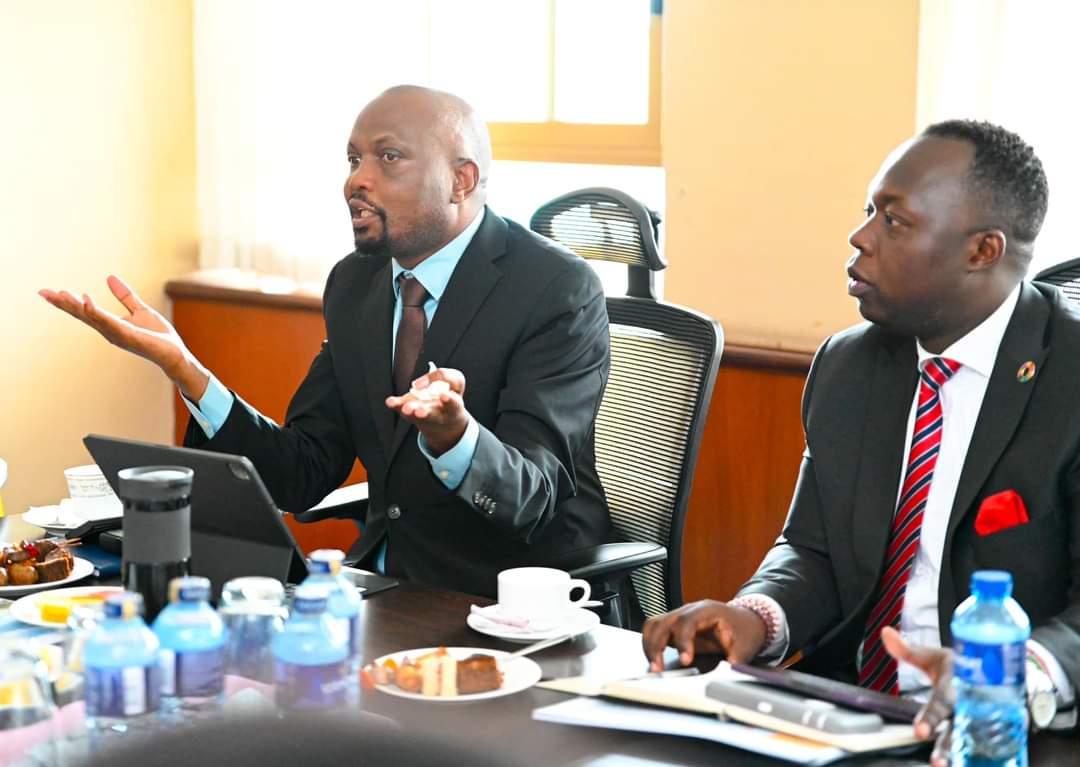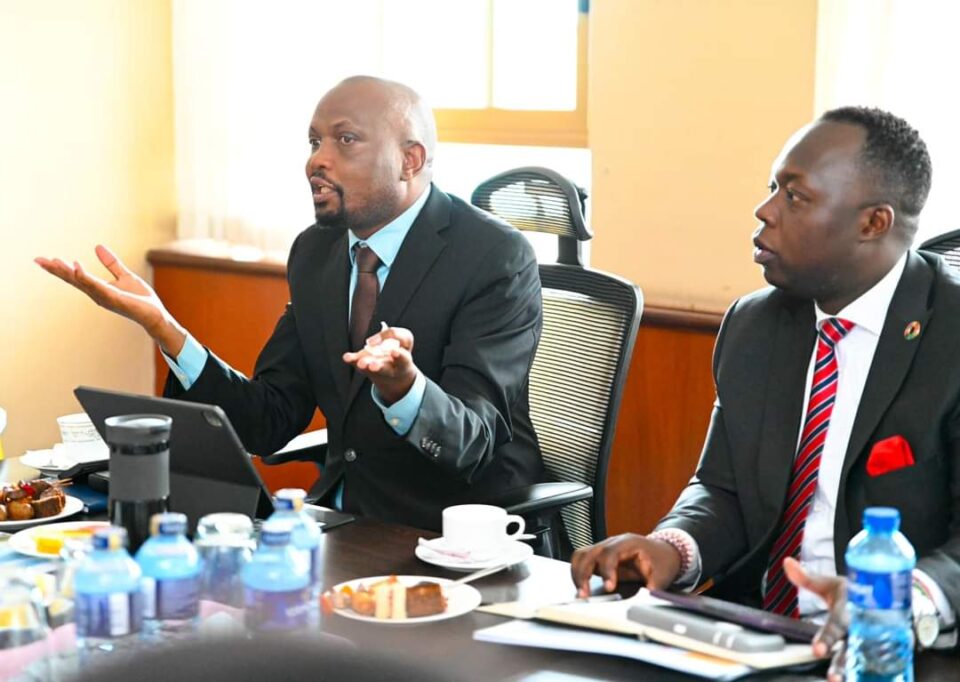Deputy President Rigathi Gachagua’s leadership in the Mt. Kenya region of Kenya, a heavily populated and politically significant area, has recently come under intense scrutiny. Various leaders, including Public Service Cabinet Secretary Moses Kuria, have openly criticized his approach, particularly accusing him of micromanagement and ineffective stewardship.
This critique reached a notable peak during a television interview on May 16, where Kuria elaborated on his concerns. Understanding this situation requires a comprehensive examination of the political dynamics, the specific criticisms levied against Gachagua, and the broader implications for his political future and the Mt. Kenya region.Mt. Kenya is one of the most crucial regions in Kenya’s political landscape.
It has historically wielded significant influence due to its population size and economic importance. The region is known for its agricultural productivity and as a commercial hub, contributing substantially to the national economy. Politically, it has been a stronghold for many of Kenya’s presidents and key political figures. Thus, leadership in this region is not only about managing local affairs but also about navigating complex political expectations and alliances.
Rigathi Gachagua rose to prominence within the United Democratic Alliance (UDA) and was chosen as the running mate to President William Ruto in the 2022 elections. His selection was partly due to his strong ties to the Mt. Kenya region and the expectation that he could consolidate support there.Prior to his role as Deputy President, Gachagua served as the Member of Parliament for Mathira constituency, where he built a reputation as a vocal advocate for his constituents and the Mt. Kenya region at large.
His political journey has been shaped by his loyalty to President Ruto and the strategic decision to present a united front in the 2022 general elections. Gachagua’s elevation to Deputy President was seen as a reward for his political loyalty and an acknowledgment of the strategic importance of the Mt. Kenya voting bloc.Despite his initial support, Gachagua’s tenure as the Deputy President has faced significant challenges.
The most prominent criticism has come from within his ranks, particularly from Moses Kuria, the Public Service Cabinet Secretary. Kuria’s critique, delivered during a television interview on May 16, focused on what he perceives as Gachagua’s micromanagement of regional leaders and a leadership style that stifles rather than fosters collaboration and initiative.
Kuria’s comments have resonated with other leaders and constituents who feel that Gachagua’s approach is overly controlling. Micromanagement, in this context, refers to Gachagua’s tendency to involve himself in the minute details of governance and political strategy within the region, rather than delegating authority and allowing other leaders to exercise their judgment. This has reportedly led to friction and dissatisfaction among local leaders who feel undermined and restricted.
Centralized Decision-Making: One of the primary points of contention is Gachagua’s centralized approach to decision-making. Critics argue that by consolidating control, he has created a bottleneck that hinders efficient governance. Local leaders have expressed frustration over their lack of autonomy and the need to seek approval for decisions that should ideally be within their purview.
Communication and Engagement: Another critical area is communication and engagement. Critics like Kuria have pointed out that Gachagua’s leadership style lacks inclusivity, leading to a disconnect between his office and other regional leaders. Effective leadership, they argue, requires open channels of communication and a willingness to engage with diverse perspectives, something they feel is currently lacking.
Developmental Agendas: There is also concern about how Gachagua prioritizes developmental agendas. Some leaders believe that his focus has been too narrow, addressing only a select few issues while neglecting broader developmental needs. This selective attention is seen as detrimental to the holistic development of the Mt. Kenya region.
The criticisms directed at Gachagua have significant implications for the Mt. Kenya region. Political unity and coherence are essential for the region to maintain its influence on the national stage. The open dissent from leaders like Kuria suggests a fracturing of this unity, which could weaken the region’s bargaining power and political clout.
Moreover, the dissatisfaction among local leaders could translate to disillusionment among constituents. If voters perceive that their regional leaders are ineffective or embroiled in internal conflicts, it could lead to decreased voter turnout or a shift in support to other political entities. This is particularly concerning for the UDA, as maintaining a stronghold in Mt. Kenya is crucial for its political stability and future electoral success.
The tension between Gachagua and other regional leaders also reflects broader political dynamics within Kenya. The relationship between the executive branch and regional leaders is often fraught with challenges, as both sides navigate power-sharing and governance responsibilities. Gachagua’s situation is not unique but highlights the ongoing struggle for balance and effective governance in a politically diverse and competitive environment.
The internal dissent can also be seen as part of the larger political maneuvering in anticipation of future elections. Leaders like Kuria may be positioning themselves for greater influence and visibility, seeking to carve out a niche that distinguishes them from the current leadership. This jockeying for position is a common feature of Kenyan politics, where alliances and rivalries continuously evolve.
For Gachagua, addressing these criticisms effectively is crucial for both his political survival and the stability of the region. Several strategies could help mitigate the current tensions.Delegation and Empowerment: Gachagua could benefit from delegating more authority to local leaders, allowing them to take initiative and make decisions independently. This approach would not only alleviate the perception of micromanagement but also foster a more collaborative and dynamic governance environment.
Enhanced Communication: Improving communication channels between his office and other regional leaders is vital. Regular consultations, inclusive meetings, and open dialogue can help bridge the gap and ensure that diverse viewpoints are considered in decision-making processes.Balanced Developmental Focus: Gachagua should strive to address a wider range of developmental issues, ensuring that his focus is not perceived as narrow or selective.
A more comprehensive approach to regional development would help address the varied needs of constituents and demonstrate a commitment to holistic progress.Political Reconciliation: Engaging in political reconciliation efforts with dissenting leaders could help mend relationships and restore unity. This might involve concessions, compromises, and a willingness to listen to and address the concerns raised by his critics.
Deputy President Rigathi Gachagua’s leadership in the Mt. Kenya region is at a critical juncture. The criticisms from Moses Kuria and other regional leaders highlight significant challenges that need to be addressed to ensure effective governance and political stability. By adopting a more inclusive and empowering leadership style, improving communication, and addressing developmental priorities comprehensively, Gachagua can navigate these challenges and strengthen his position.
The stakes are high, not just for Gachagua but for the entire Mt. Kenya region, as it seeks to maintain its influential role in Kenya’s national politics. The coming months will be crucial in determining whether Gachagua can successfully address these issues and restore confidence in his leadership.


